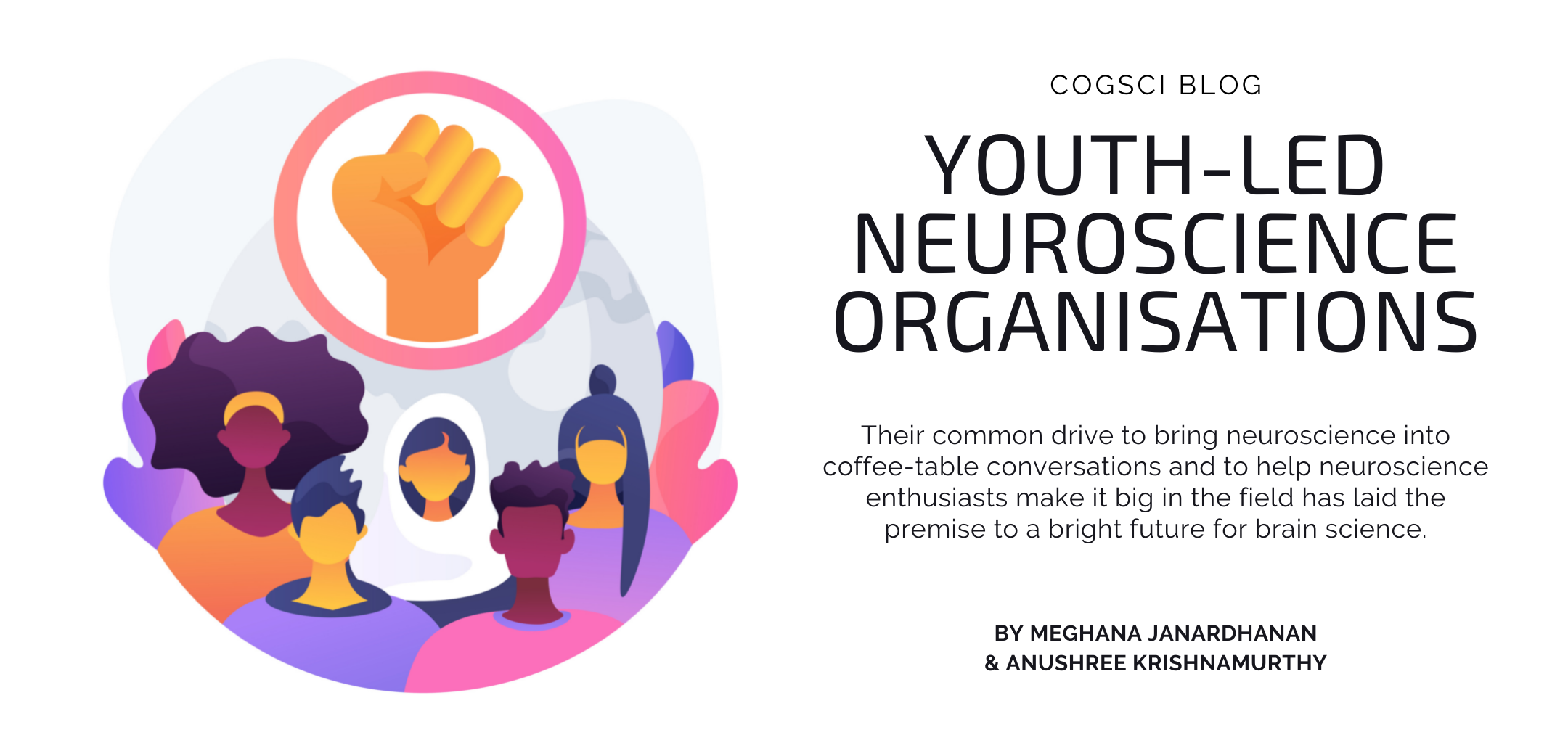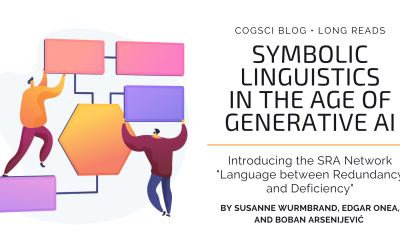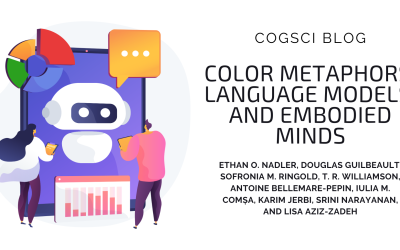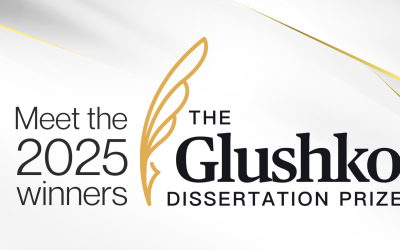The future promise of any nation can be directly measured by the present prospects of its youth. – John F. Kennedy
Being the flag bearers of the future, the youth play a very important role in terms of having a wilful temperament, robust energy, and intellectual curiosity to explore the unknown. One of the biggest unknowns, apart from the universe, of course, lies right on top of our shoulders – the Brain. Neuroscience is arguably the next big scientific frontier, following genetics and astrophysics, because unlocking the secrets of the brain holds the proverbial key to the future of the human race. The synapse of youth and neuroscience is and will be instrumental in advancing research as well as prematurely creating a global community of students inspired to communicate and collaborate for the future of science.
Here we bring to you a non-exhaustive list of some such youth-led neuroscience initiatives that are making their mark across the globe:
Simply Neuroscience
What began as a one-woman blog, unexpectedly heightened into an international, student-led nonprofit organisation and was the inception of Simply Neuroscience in 2019. Being led by high school students and undergraduates, SN is dedicated to fostering students’ interdisciplinary interests in the brain, breaking stereotypes and perceptions about neuroscience and bridging the gap between STEM, humanities and their multifaceted applications in communities, at a local, regional, national and international level. From creating free study resources and lesson plans about neuroscience to making blogs/social media posts, SN indulges in a surfeit of activities including but not limited to, spearheading initiatives to promote mental health awareness, providing a supportive community of students with interests in the brain, organising virtual and in-person events such as Simply Neurocon, drafting legislation concerning mental health reform, developing practical guides to encourage exploration in scientific research, and running a hotline to address neuroscience-related questions. SN intends on achieving its goals by advocating neuroscience and psychology education, outreach, and awareness, and by creating an inclusive environment for students in neuroscience.
Project Encephalon
A simple “Hi” in the chatbox of the Monsoon Brain Meeting, formed a group of fewer than 50 students interested in building the future of neuroscience. In June 2020, this set off the dawn of Project Encephalon (PE), a student-run, international non-profit organization of neuroscience enthusiasts based in India turned into a global venture with 700+ members representing 24 countries in less than six months amidst the pandemic. Hosting a variegated member base, from high schoolers to early career researchers, and professionals from the vast arena of neuroscience and allied fields, PE has created an inter-disciplinary community of neuro-enthusiasts to expose students to the myriads of realms in this field, inspiring a holistic approach to brain sciences. PE runs an online platform on Discord where members interact, discuss, and share resources related to neuroscience. To promote the academic endeavors of its members, PE conducts fortnightly Journal Clubs, where amateurs and experts from around the world deliver talks about their research or present peer-reviewed research articles. To delve deeper into the fascinating field of neuroscience, PE in collaboration with Stimulus, organized the first international youth-led conference in Neuroscience from India: the NeuroNovember Convention 2020. In addition, it has several activities ongoing such as Sapiens in Neuroscience and NeuroPiction as well as some under-the-pipeline, to make learning Neuroscience an accessible and enriching experience.
NeuWrite
NeuWrite was founded in 2009 with an uncanny goal of intertwining people from diverse walks of life, seldom found in the same room. This led to an amalgamation of students and postdoctoral fellows from the Department of Neuroscience and the students in the non-fiction and poetry MFA (Master of Fine Arts) program of Columbia University. NeuWrite expeditiously became a noted forum for interdisciplinary work, attracting academics from prestigious institutions across New York City including Rockefeller, Mt. Sinai, CUNY, SUNY, and NYU, as well as professionals from media platforms such as The New Yorker, The New York Times, NPR, Scientific American Mind, and The Story Collider. NeuWrite has since expanded to include universities from other cities, including NYU, Stanford, Boston, San Diego, Philadelphia, London, and Portland, Oregon. NeuWrite functions as a workshop for work-in-progress and as a forum for people from varied backgrounds including graduate, postdoctoral and faculty research scientists, fiction and nonfiction writers, filmmakers, radio producers, artists, physicians, and journalists. With the mission to develop novel strategies for communicating science to a general audience in an enthralling and scientifically accurate way, NeuWrite is now an international network of scientists, writers, radio producers, filmmakers, and artists.
International Youth Neuroscience Association
A group of competitors at the USA National Brain Bee in 2016 collaborated with Dr. Norbert Myslinski to establish Youth Neuroscience Clubs of America (YNCA), a group with the grail to connect high school students interested in neuroscience through a network of clubs. Eventually rechristened the International Youth Neuroscience Association (IYNA), it now hosts more than 4500 members spanning from 105 countries across the world. From a mentorship program to connect highschool students with undergraduate, graduate and professional mentors to the Modern Youth Education, Leadership and Enquiry in Neuroscience (MYELIN) initiative to make Neuroscience part of the high school curriculum, IYNA hosts a plethora of initiatives including a resource database, a blog, the Hip Hop Stroke Ambassador Program to educate the community about stroke, a bimonthly journal and various international chapters to promote neuroscience at local levels. Backed by its motto of building the next generation of neuroscientists, IYNA hopes to educate budding talents about the brain and advance an interdisciplinary collaboration among the neuroscientists of the future.
Stimulus
Stimulus envisions a future where the youth are informed, aware, and active. With an aim to build and empower a community of young students, professionals and mentors in the field of brain sciences, Stimulus wants to stimulate an inherent drive to learn and foster a community with an intellectual curiosity to explore neuroscience, cognition, behavior and psychology. Founded in July 2020, Stimulus strives to educate young people about the varied prospects of research in neuroscience and hopes to mold the way the future generation addresses real-world problems, both scientific and societal. In particular, Stimulus hopes to use their reach to uplift marginalised communities – by educating the specially-abled on their rights and agitating for access parity, as well as by extending research and learning facilities to socio-economic minority groups. Stimulus hosts an inventory of resources that are used primarily by its high-school member base of neuro-enthusiasts and also conducts several seminars and webinars to further its objectives, the most recent of which was the NeuroNovember Convention 2020 in collaboration with Project Encephalon. Stimulus believes in accessible and unbiased education for all, embedded in its motto of breaking barriers together.
“Youth is wasted on the young” is a common saying, often misquoted across the internet. This current cohort of youth-led initiatives especially in Neuroscience deems such statements null and void as their growing impact on spreading knowledge about the brain to young and old-alike is phenomenal. Their common drive to bring neuroscience into coffee-table conversations and to help neuroscience enthusiasts make it big in the field has indeed laid the premise to a bright future for brain science.
By Meghana Janardhanan (@_meghana_j) and Anushree Krishnamurthy (@AnushreeKMurthy)



